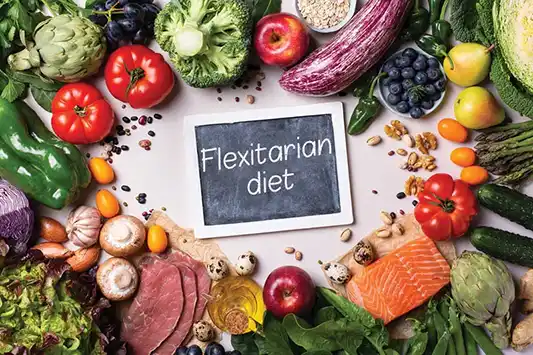What about fasting?
A study done with 1000 men and women showed that 22% of women and 17% of men practice unhealthy weight loss methods. Such methods included skipping meals and fasting. Skipping meals can work against weight loss efforts in several ways. For some, skipping meals results in snacking throughout the day. Often, the snacks end up being higher in calories than a normal meal. For others, the body may think it’s “starving,” so it becomes more efficient at burning calories. People who skip meals routinely burn calories 7% to 10% more slowly than people who consume regular meals do. There are also people, who skip meals and overeat at following meals, which changes their metabolism so that it becomes difficult to burn calories.
Many people have the misconception that fasting can help with weight loss. For example, if someone slips up one day, he or she may think that fasting the next day will make up for the slip. While some may see a loss in pounds from fasting, this is mostly a result of water loss. Furthermore, a total fast may result in fat loss, but it may result in a considerable amount of lean muscle loss as well. Please remember that muscle burns calories. Fasting beyond a day or two may also endanger one’s health. Fasting more than a day or two is starvation. Fasting can cause fatigue, nausea, headaches, low blood pressure, and heart problems. Don’t forget our heart is one big muscle and can be put into jeopardy by poor eating habits. It can be especially hazardous to someone with diabetes. Instead of trying to fast, it’s best to just focus on getting back on track and giving your body the nutrients, it needs.
So, if you find yourself in the habit of skipping meals or fasting to lose weight, stop it! You are better off boosting your metabolism with little meals. Consuming small, frequent meals; can help your body burn more fat. Studies show that we lose our ability to burn fat from larger meals as we age or from poor eating habits like those mentioned. After consuming a 1000-calorie meal, older people in the study were found to have burned 30% less fat than younger people. Fat and calories that our bodies don’t burn for energy gets stored as body fat. However, studies have shown that older people who consumed smaller meals of 250 to 500 calories were able to burn just as much fat as younger people do. So, try to eat more often, but fewer calories per meal. Young or older it can help to protect your lean muscle mass and encourage your body to burn fat and calories.
If you are struggling with weight loss, please call Eunice at 928-753-5066 or stop by Diet Center in Kingman.

























